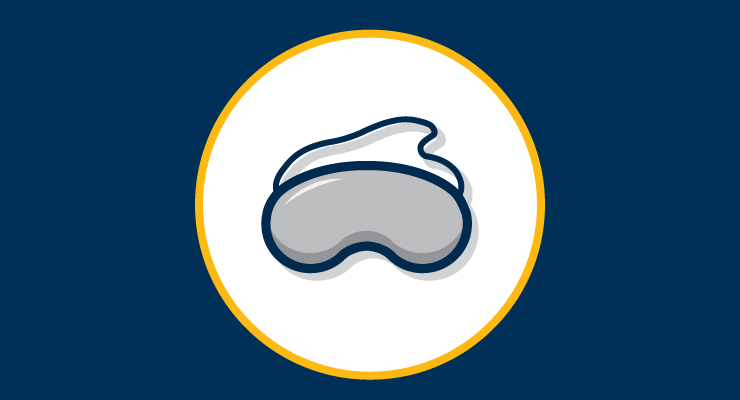Blank Space (medium)
(text and background only visible when logged in)
(text and background only visible when logged in)

Blank Space (medium)
(text and background only visible when logged in)
(text and background only visible when logged in)
While napping will not make up for a lack of consistent nighttime sleep, it can act as a short-term energy booster and improve your cognitive function, mood, and memory.
College students are among the most sleep-deprived people. Experts recommend getting 7 to 9 hours of sleep every night, but sometimes your schedule may not allow you to get a full night's sleep. Short power naps of 20-30 minutes are best as longer naps can cause sleep inertia, or a period of grogginess and reduced performance, caused by waking in the middle of deep sleep. Napping can:
- Increase alertness and focus
- Help to increase energy levels throughout the day
- Increase motor performance and reduced mistakes
- Decrease moodiness
TIPS
If you are not a great napper, here are some tips to get you started:
- Keep naps short and sweet – a power nap of 20-30 minutes can renew attention span and refresh the mind
- Schedule time for naps
- Try not to nap after 4 pm
- Set an alarm – this will keep you from sleeping through your next class or commitment
- Use an eye mask and/or earplugs to tune out distractions
- If you aren’t napping in your residence hall, make sure to nap in a safe space and secure your belongings
- Try practicing mindfulness. Mindfulness and meditation provide many of the same benefits that you get from napping, and you don’t have to lie down! Close your eyes, focus on your breath and relax your muscles. When thoughts come, acknowledge them and let them go.